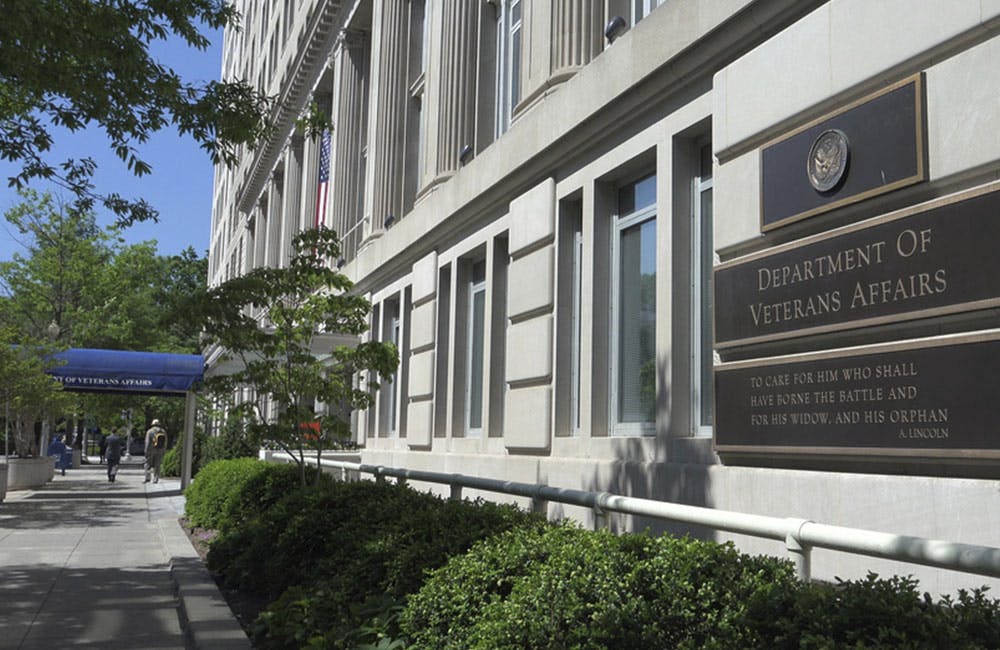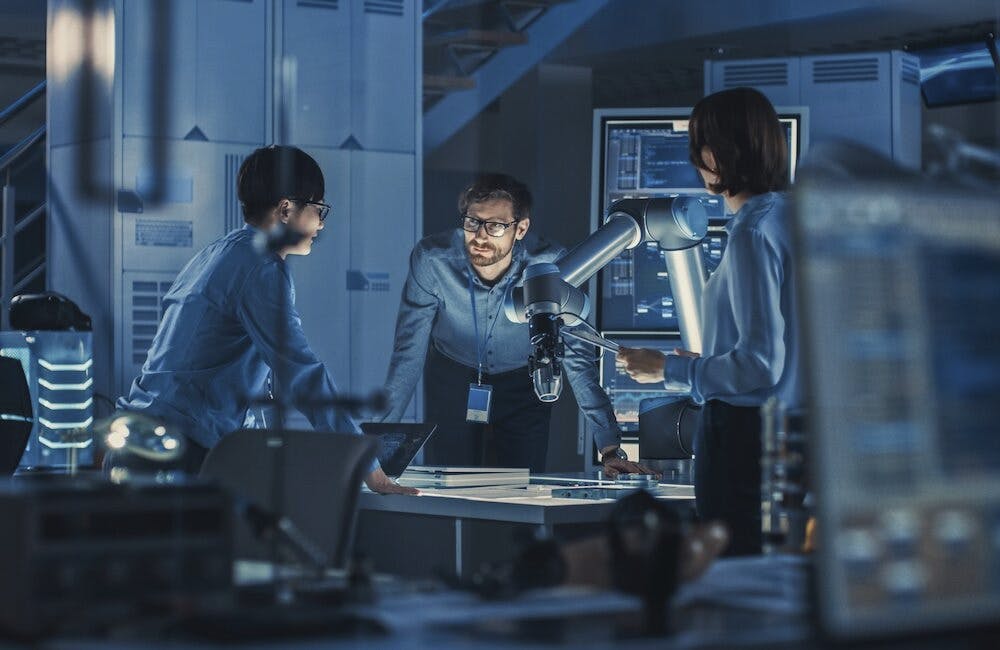AI Brings ‘Tremendous Promise’ to Security, Traveling Experience
Agency leaders are looking at responsibly integrating the emerging technology into agency operations.

The Department of Homeland Security sees artificial intelligence as a tool to move the agency into the future, officials said Tuesday at the GovAI Summit in Arlington, Virginia. Agency leaders said the technology will help streamline operations, crunch data more quickly and improve customer interactions.
“Imagine embarking on a journey where the seamless orchestration of technology transforms traditional security,” TSA Deputy CIO Kristin Ruiz said at the event. “In the future, AI-powered advancements signify an evolution driven by data science, analytics and intelligent automation that will transform TSA operations and the technology available to its travelers.”
In addition to improvements for the traveler experience, AI could improve baggage screening with image-recognition capabilities. It could also help create dynamic operational training scenarios and analytics systems that proactively identify and mitigate potential threats across transportation systems.
“Imagine AI-driven analytics systems across multimodal transit hubs to assess real-time problem behavior, unattended items and potential threat patterns,” Ruiz said. “These systems will use machine learning to analyze vast data streams from sensors and cameras predicting and identifying anomalous behavior or things that could pose a potential security risk.”
DHS has a critical role outlined in the White House’s AI strategy and executive order that directs the agency to assess potential risks related to AI use in critical infrastructure, as well as establish safety and security guidelines for it. Specifically, the order tasks DHS with coordinating with international allies and partners to prevent and recover from potential disruptions resulting from AI or its malicious use.
Last week, DHS Secretary Alejandro Mayorkas said there is “tremendous promise” to advance the agency’s mission, a statement echoed by DHS Chief Scientist Sam Howerton at the event Tuesday.
“Responsibly designed AI for the department gives us the chance to provide services at scale and speed we have not been able to before. It’s going to reduce the friction that people have,” Howerton said. “The future of Homeland Security admin, from a customer perspective, is one driven by decreased friction and faster response times. … There’s no doubt in my mind that the scale and complexity of the DHS mission is going to continue to grow.”
Howerton emphasized that AI adoption will need to be based in human-centered design. In keeping with the White House executive order, Howerton highlighted the need to responsibly develop AI with the next generation in mind.
“Our human-centered approach has to take into account not only our customers and our operators, but I daresay the operators in the future, as well. Because these geopolitical forces, these technological forces, are going to continue to kind of impress upon us,” Howerton said. “What happens when people are no longer the primary interrogator of our cyber physical systems?”
Ruiz also said that the future will require responsibly designed AI and augmented reality systems to balance privacy and security. Keeping pace with AI will be an all-of-government job.
“It takes all of us coming together and working toward evolving security to protect our nation and its travelers,” she said. “Embracing AI assures that travel security doesn’t just keep pace with changing privacy.”
This is a carousel with manually rotating slides. Use Next and Previous buttons to navigate or jump to a slide with the slide dots
-

White House Science Chief: US-Driven AI Sets Global Standards
Michael Kratsios outlined how American AI technology on the global stage will help standardize the tech and counter China’s influence.
5m read -

Modernizing Critical Infrastructure in the Face of Global Threats
Officials are expanding the latest strategies in boosting defense infrastructure, including securing satellite communications, upgrading enterprise-wide technology, optimizing data management.
20m watch -

Trump AI Orders Call for Speed in Building Infrastructure
The directives call for expanding AI infrastructure, streamlining federal permitting and promoting AI exports.
4m read -

DOD Accelerates Software Modernization with Agile DevSecOps Push
The Pentagon's software implementation plan tackles cultural hurdles and integrates security early to deliver critical capabilities faster.
6m read -

White House Unveils AI Action Plan to Secure Global Dominance
The strategy outlines steps to accelerate private sector innovation, build critical infrastructure and advance U.S. leadership in AI policy and security.
3m read -

VA's Platform One Powers Rapid Innovation to Bolster Digital Services
VA's Platform One accelerates software development timelines from weeks to hours, ultimately enhancing digital services for veterans.
5m read -

Doing More with Less is Muscle Memory for IRS, Former Deputy CIO Says
Darnita Trower discusses her experience, the legacy she’s left behind and how she pushed the IRS to modernize itself,
20m watch -

Opinion: Original Intelligence Is the Missing Piece for AI Transformation
Limitations of AI agents and development drive growing needs for workforce development and "original intelligence."
3m read -

Pentagon's $200M AI Contracts Signal Broader Effort to Transform Talent
The Army is leveraging Silicon Valley, reservist programs and new hiring strategies to integrate critical digital skills in its ranks.
5m read -

AI Foundations Driving Government Efficiency
Federal agencies are modernizing systems, managing risk and building trust to scale responsible AI and drive government efficiency.
43m watch -

Agencies Tackle Infrastructure Challenges to Drive AI Adoption
Federal agencies are rethinking data strategies and IT modernization to drive mission impact and operational efficiency as new presidential directives guide next steps.
5m read Partner Content -

Generative AI Demands Federal Workforce Readiness, Officials Say
NASA and DOI outline new generative AI use cases and stress that successful AI adoption depends on strong change management.
6m read
















